‘Trusted colleague,’ ‘wise counsel’ retires from role in academic affairs
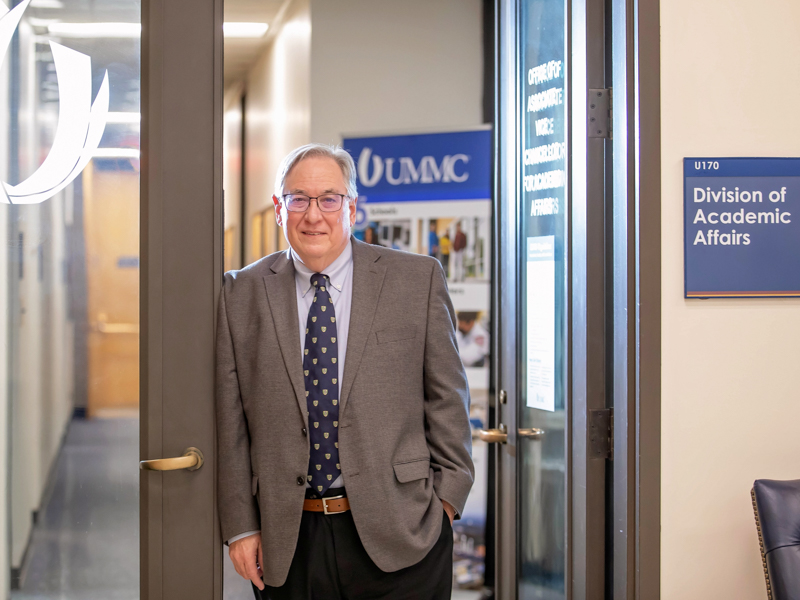
Dr. Ralph Didlake is looking at a photo of a radio set the way some people look at a fried lamb chop.
“Everyone should have one of these,” he says, pointing to the image of a receiver salvaged from a World War II American sub; it weighs 75 pounds and he got it for $10, he says.
“I’ll make it work; it has no choice.”
Didlake, a former practicing surgeon who executed his first midline abdominal incision on a teddy bear when he was 12 (it had no choice), must always be working on something, often with his hands and often, in keeping with one of his hobbies, on a wizened wireless.
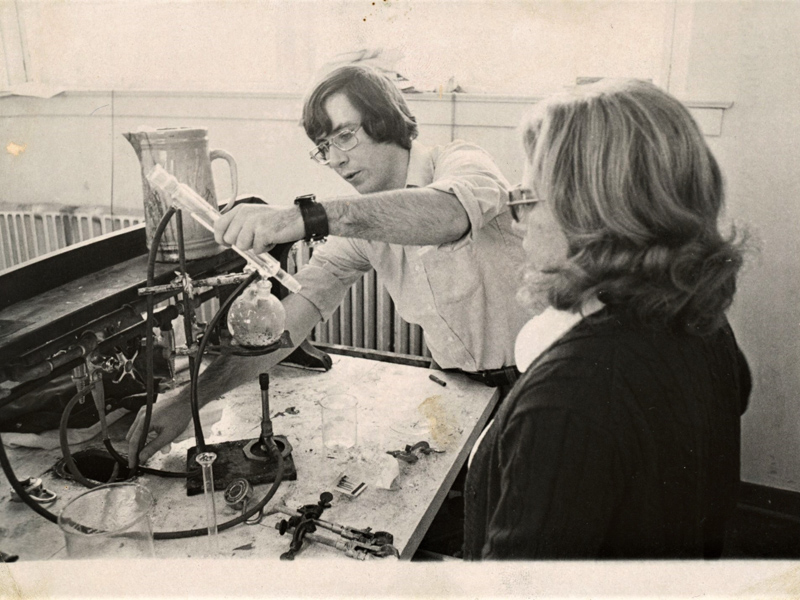
And, as befits someone versed in an array of subjects, including the humanities, he has no choice but to use his mind, which he has done for the past eight years and eight months in the role he’s about to leave, officially, on Thursday: associate vice chancellor for academic affairs at UMMC.
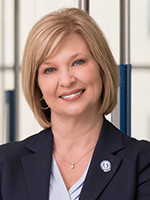
“At my request, Ralph agreed to take on the position of associate vice chancellor for academic affairs almost nine years ago,” said Dr. LouAnn Woodward, vice chancellor for health affairs and dean of the School of Medicine. “He has touched numerous lives through his leadership and contributions, and has been a trusted colleague and wise counsel to us all.
“I will miss him greatly. In the journey through life, it is a rare honor to work closely with someone as wonderful and selfless as Ralph.”
Didlake, who may have more time to spend in the workshop behind his home in Madison, could have stayed on; he had a choice. But, he said, academic affairs “needs fresh eyes and fresh legs.
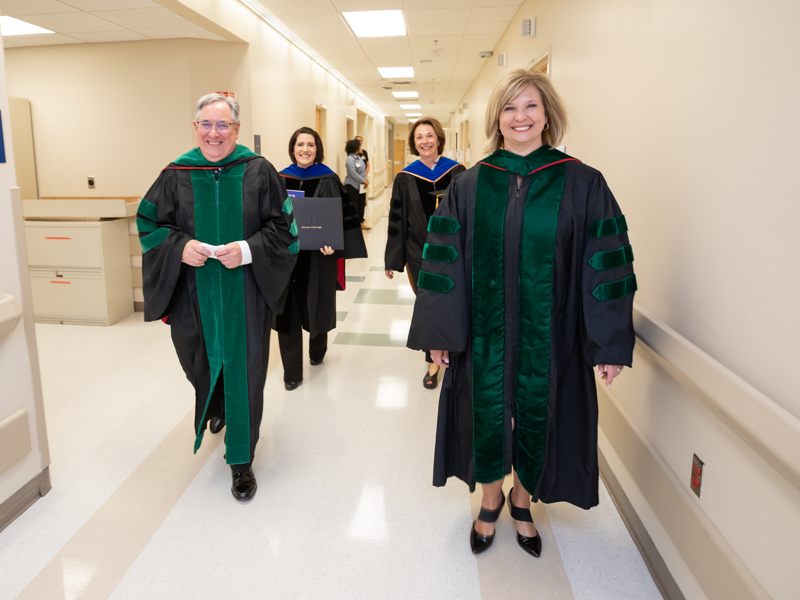
Those eyes and legs belong to Dr. Scott Rodgers, the current professor and chair of psychiatry and human behavior, and Didlake’s successor.
“But I’ve loved working with the faculty here,” Didlake said. “It’s been a great run.”
His run at the Medical Center began when he dashed onto the campus as a medical student. Since August 1975, he has been associated in some way with UMMC, even during the 10 years he spent in private practice before rejoining the faculty in 2010.
For years, he has also served as director of the Center for Bioethics and Medical Humanities. And, for the last decade or so, he has led the Asylum Hill Project, helping to study and memorialize the remains of patients from the bygone State Hospital for the Insane who were buried on the campus grounds.
“That’s where my passion lies,” Didlake said. It is, along with his work in academic affairs, among the most gratifying accomplishments of his career.
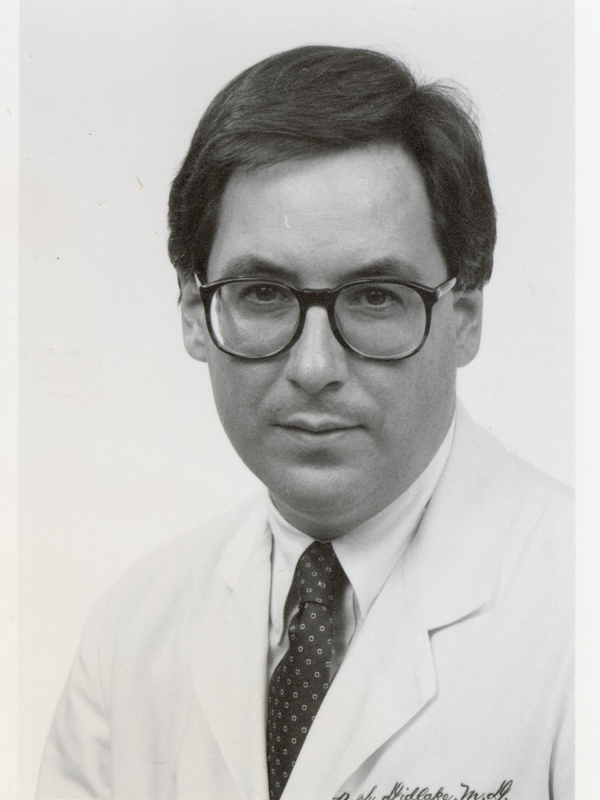
“I’m proud of the work I did as a practicing surgeon here,” said Didlake, who is also a professor of surgery. “I got to work with some great people. But I believe being able to play a small part in bringing academic progress creates a different type of satisfaction.
“In the OR, you’re taking care of one patient.” But, when in the cause of advancing health care education, “you’re taking care of all the patients those future graduates will take care of,” he said.
“I’m also proud of the Center for Bioethics. And I’m really proud of the Consortium we put together to manage the Asylum Hill Project. It’s an extraordinary group of people.”
Beyond the Consortium members, those who have worked with him closely include Dorothy Singleton, project manager in the Office of the Vice Chancellor for Academic Affairs. Although she knows him pretty well, she has a hard time picturing such an erudite fellow driving a tractor.
“To relax, he likes to go out and bush hog and cut on his land in Madison County; that surprised me,” Singleton said. “But he is very laidback and friendly.”
Although Didlake started his life in Albuquerque, New Mexico his family reclaimed their Mississippi roots in rural Copiah County when he was still young. This may be why he describes himself as “just an unwashed country boy who came to the Medical Center.”
If so, he’s a country boy who can, said Singleton, “talk about any subject.”
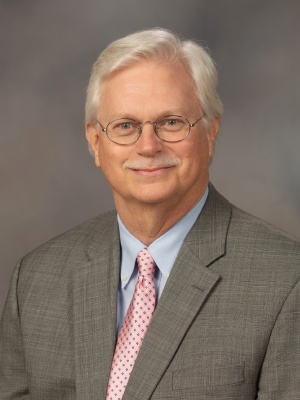
“Any” includes philosophy, ethics, history and the humanitarian aspects of medicine, said Dr. Richard Summers, associate vice chancellor for research, Billy S. Guyton Professor of Emergency Medicine. “It’s surprising to find a surgeon who has such diverse interests,” Summers said.
Summers was a medical student when he first met Didlake, a surgery intern at the time. “Ralph was reasonably kind to us medical students, and he has always been someone I’ve respected ever since,” Summers said.
“He and I are close friends, and I will always think of him that way – someone I feel like I could tell anything to, and I believe he feels the same way about me.”
Dr. Jimmy Kolb’s first encounter with Didlake was similar to Summers’. Didlake was a surgery intern and Kolb a medical student being quizzed by residents about the cause of a digestive tract inflammation. Kolb’s answer did not satisfy.
“My resident kind of berated me,” said Kolb, now a professor of emergency medicine at UMMC. “Most interns would have kept their mouth shut, but Ralph, with his kind smile, stood up to the resident for me and said that, actually, he thought I was right.
“A few years later when I worked in the ER, Ralph stood out as always treating ER folks with respect, something that was not common in surgery interaction with the ER in the early days when residents were always stressed and sleep-deprived.”
Didlake’s thoughtfulness has been a source of reassurance for Dr. Robert Hester, Billy S. Guyton Distinguished Professor, professor of physiology.
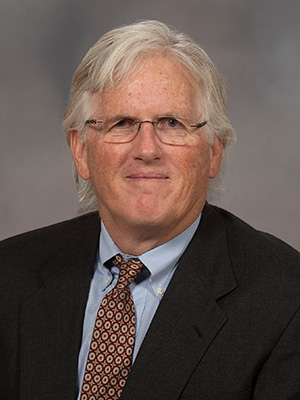
“He had asked me to be interim chair of data science in 2017,” Hester said. “I was suddenly thrown into a chair position with people with whom I had had no interaction. He was supportive the entire time. He realized that this was a position I hadn’t asked for.”
Didlake knew, more or less, how that felt. When Woodward asked him to take on the job in academic affairs, in 2013, he told her, “’I will do that for a few years until you find someone more qualified.’ But she’s very persuasive,” he said.
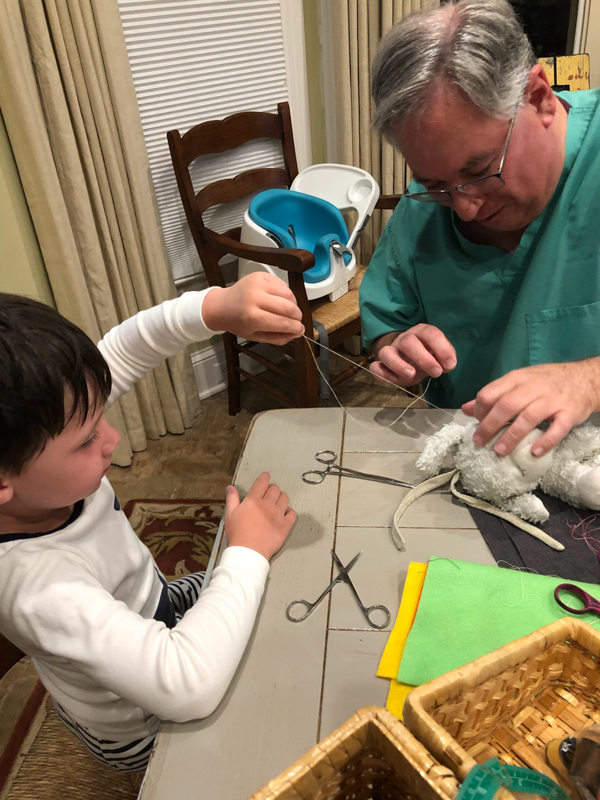
“One of the reasons this role has been so satisfying and enjoyable is based on LouAnn’s leadership. I always feel more energized when I leave her office, no matter what list of problems I bring her.”
Which raises the question: What will he miss the least from academic affairs? “It’s always difficult when a student is dismissed,” Didlake said. “It’s not something we do lightly. It’s a life-changing event for them.”
As for an event that has changed his life – for the better – one occurred when he met an ER nurse, Millie Faith McDonald, over a trauma patient. They married in 1983 and had three children who had children of their own: another event that changed his life.
“I would never have predicted that I would have become an engaged grandparent,” Didlake said. “That took me by surprise: what a powerful force grandchildren are.”
There is a photo of one of those forces, Liam, working with his grandfather and some thread and scissors on a stuffed toy lamb; it has no choice.


